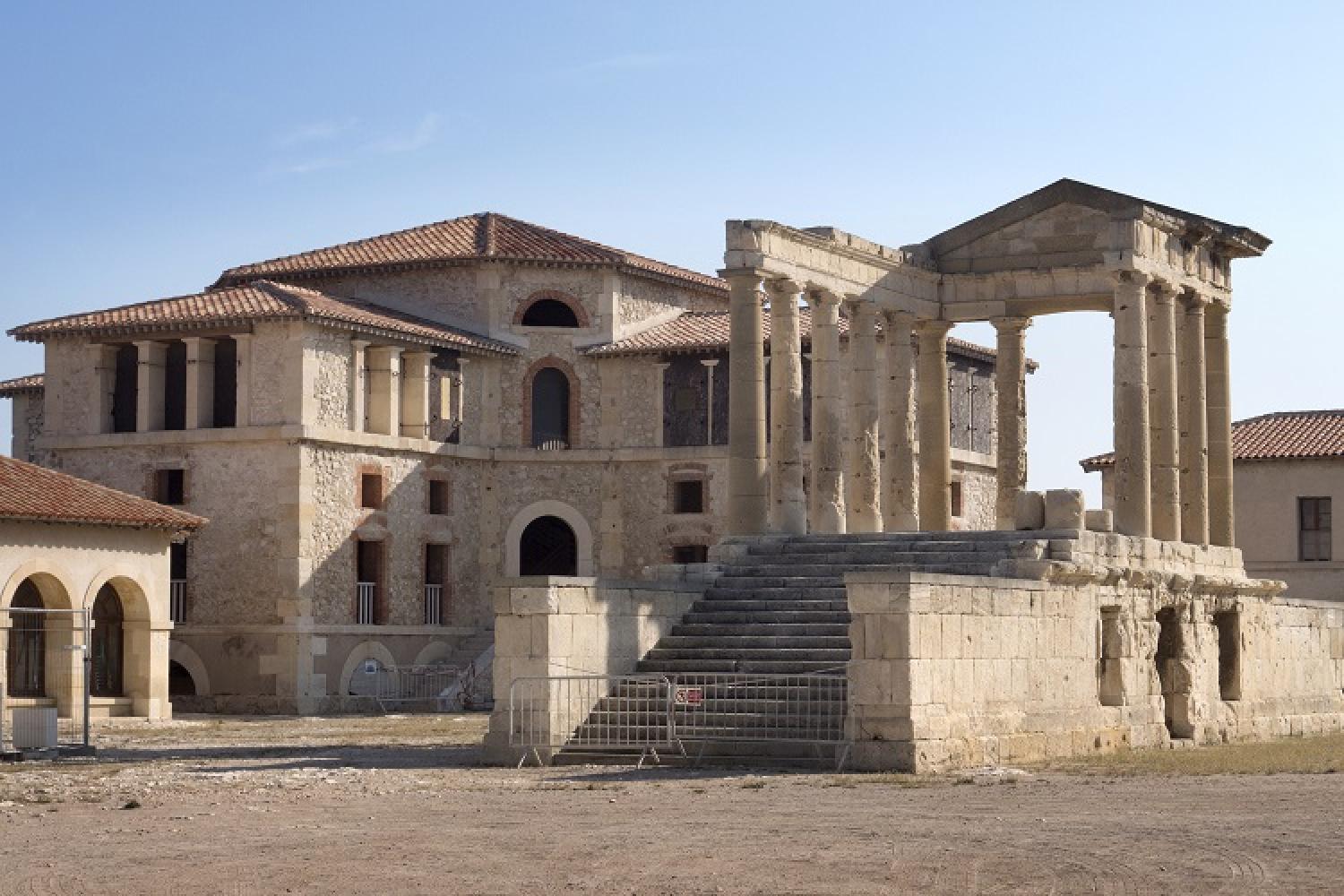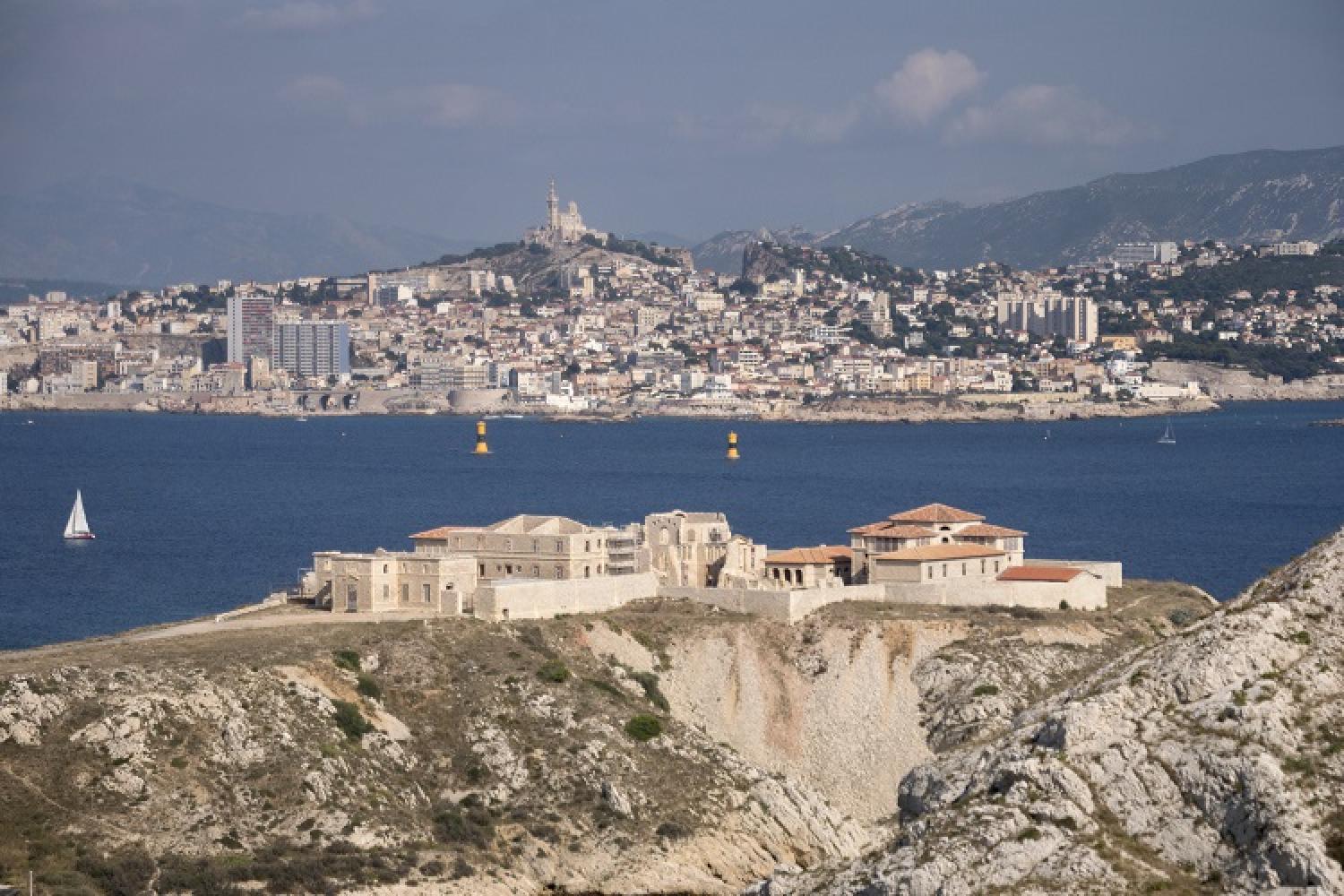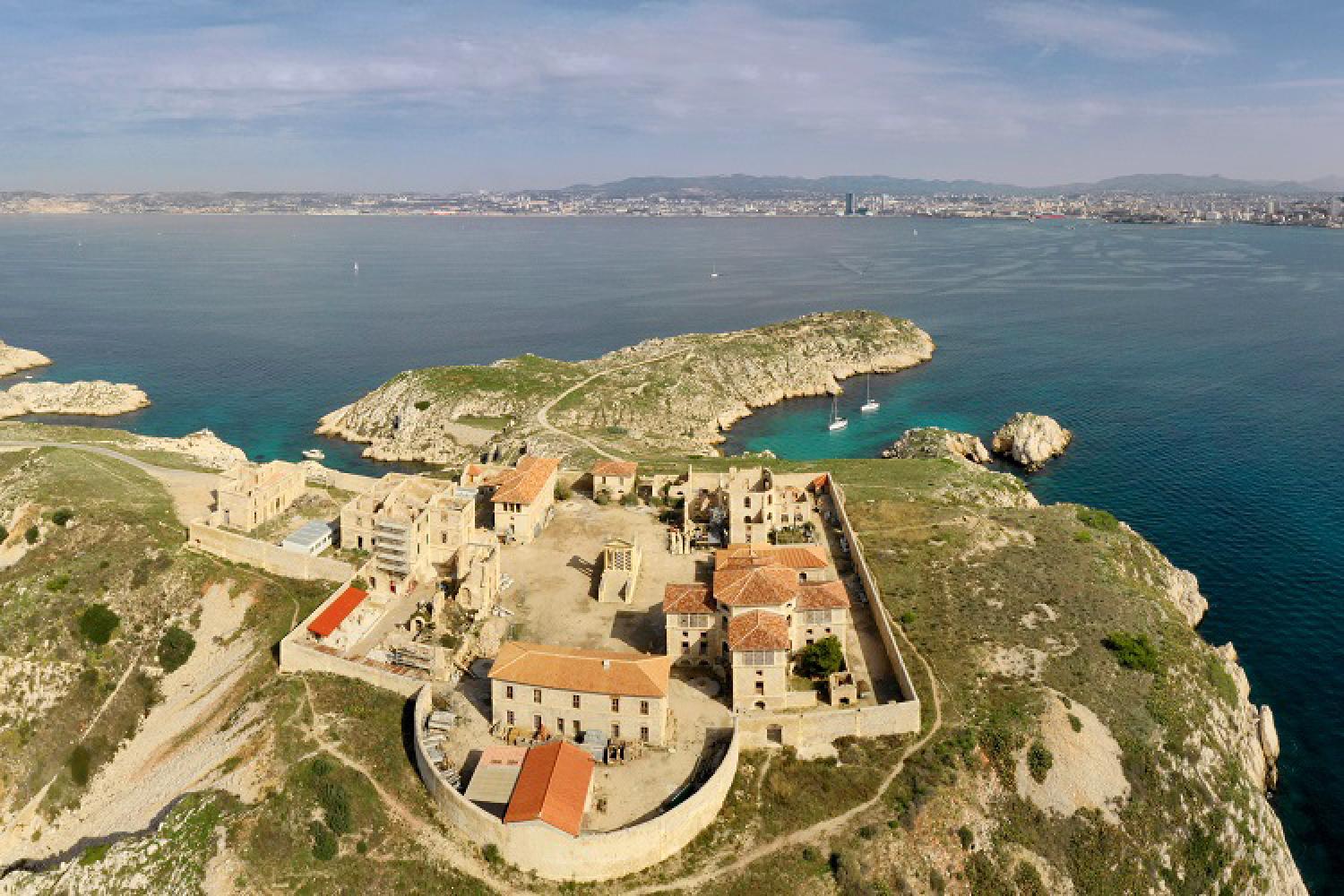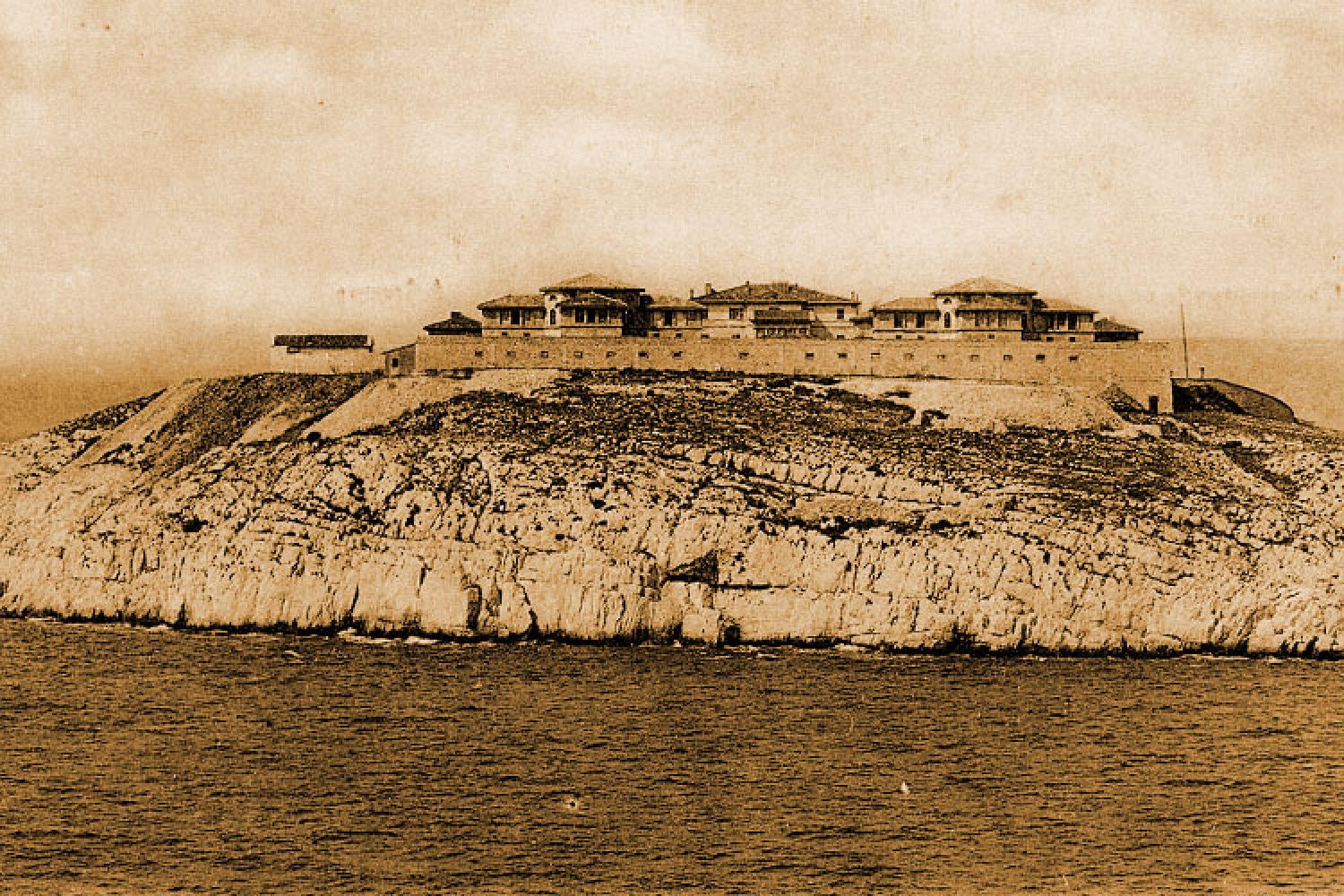A health facility on the Frioul islands
The origins of Hôpital Caroline
Le Frioul has a long history of health. From the 16th century, the natural cove of Pomègues was used as an official quarantine area for ships from abroad, to prevent the spread of disease. Around 1820, a terrible yellow fever epidemic ravaged Mediterranean ports. The French State decided to modernise its facilities. In addition to building a proper quarantine port, it ordered the construction of a hospital to accommodate the sick.
Innovative architecture and reclusive life
Inaugurated in 1828, Hôpital Caroline is a perfect example of Neo-Classical style architecture. Its architecture was innovative. With four pavilions spread around an inner courtyard, everything was designed to isolate the infected residents from those in convalescence and from the staff. To avoid contact, a chapel was even built in the centre of the courtyard. Entirely glazed, it allowed patients to follow the service from behind the windows of their pavilion.
A windy hospital
Open to the winds on all sides, the patients' pavilion is reminiscent of 19th century hygienist thinking. At that time it was thought that the wind had curative properties, carrying away the infected miasmas. When you know how strong the wind can blow on the Frioul archipelago, you can imagine just how cold the patients must have been!
An eventful history
In the end, yellow fever never struck Marseille! The hospital nevertheless received patients, particularly after the transfer of patients from the Arenc lazaretto to Frioul in 1850. The army also requisitioned the premises to treat sick soldiers.
The hospital remained in service until 1941, when it became an ammunition depot for the German army. Bombed by the Allies in 1944, it was abandoned until its acquisition by the City of Marseille in the 1970s. It was listed as a historical monument by order of 5 August 1980.
Did you know?
Hôpital Caroline got its name from Marie-Caroline de Bourbon-Siciles, the wife of the Duc de Berry, second son of Charles X, king of France.
Visiting and regulations
Hôpital Caroline is located on the island of Ratonneau, opposite Marseille: consult the page dedicated to the Frioul islands to find out more about the best practice and regulations to be followed.
A restoration project launched in 2007 is still underway. Hôpital Caroline can only be visited on rare occasions, such as the European Heritage Days. More information can be obtained on the City of Marseille website on these occasions. However, from the entrance gate, it is possible to have beautiful views of the inner courtyard and the chapel.
Access
Bateau Frioul-If from the Vieux-Port.
Location
GPS coordinates: 43.283640, 5.319024
 Resources
Resources
Educational Booklet: Frioul, les îles du voyage (in French)
Les îles de Marseille – Découverte du Frioul, éditions Les Alpes de lumière
Îles du Frioul - L'histoire, by François-Noël Richard, éditions Les Alpes de lumière





 Video
Video Links
Links